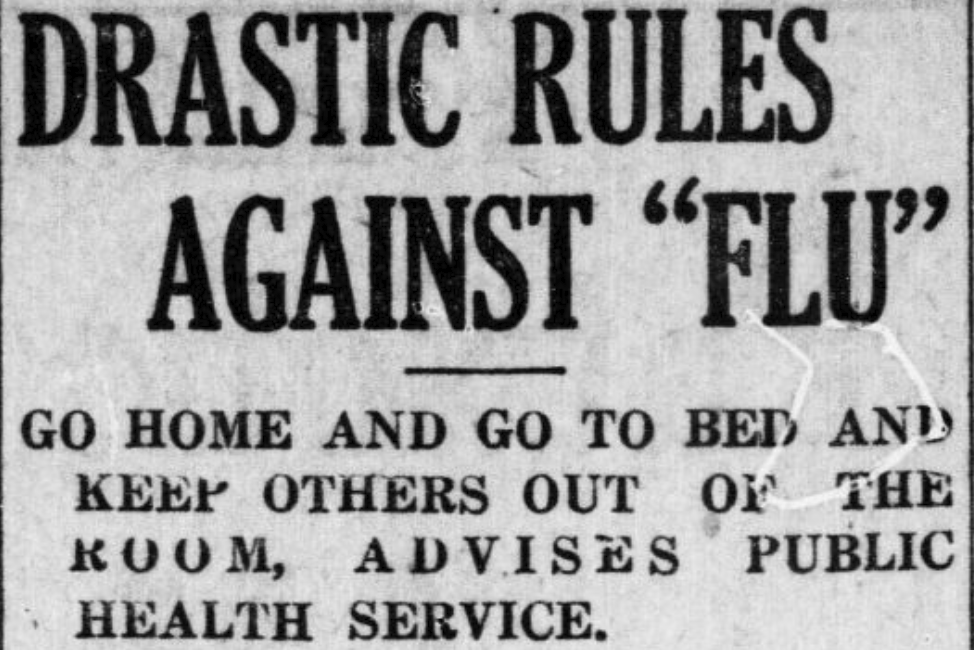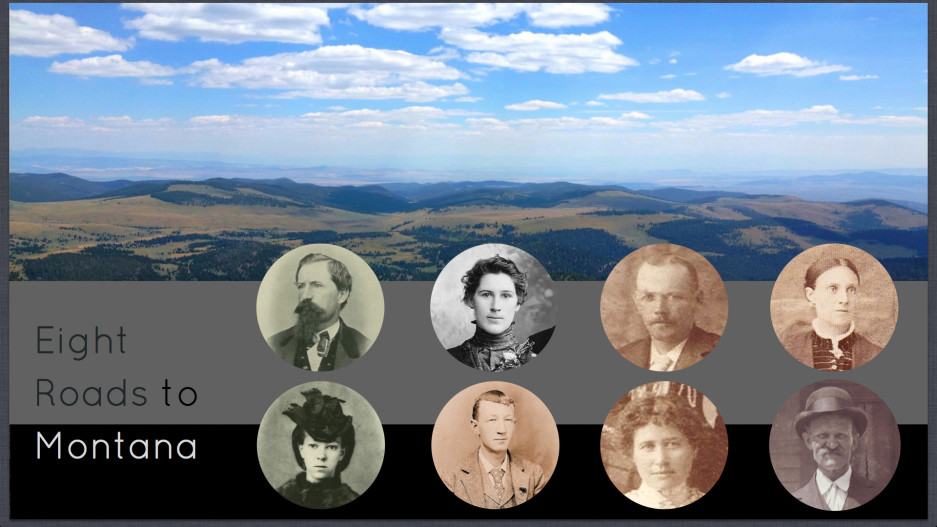Excerpts from this article published on 11 October 1918 in The Producers News, Plentywood, Montana, sure sound familiar . . .

Emergency regulations providing for . . . the closing of schools, theaters and places of public amusement and prohibiting public gatherings upon the outbreak of influenza in any Montana community, were promulgated Monday afternoon by Secretary W. F. Cogswell of the state board of health. Governor Stewart and Attorney General Ford approved of the regulations and when a quorum of the state board of health is available, the board will approve the new rules, which are as follows:
Spanish Influenza is hereby declared to be infectious, contagious and communicable and dangerous to public health.
Patients suffering from Spanish influenza shall be isolated as completely as possible until after recovery. They shall [be] prohibited from any public gathering and from traveling on any common carrier.
When treated in hospital wards patients recovering from Spanish influenza should be screened from other patients.
All discharge from nose and mouth of patients should be disinfected at once.
The article continues . . .
Influenza is spread from person to person, the germs being expelled by coughing or sneezing, forceful talking and the like . . . A person having a mild attack himself by give a very severe attack to others.
The surgeon general offered the following advice . . .
Persons afflicted should go home at once and go to bed . . . This will help keep dangerous complications away and prevent the disease from being scattered. No one should be allowed in the same room with the patient.
With regard to medicine and general care of the afflicted individual, the surgeon general advised . . .
Only such medicine should be given as is prescribed by the doctor. It is foolish to ask the druggist to prescribe and may be dangerous to take the so-called ‘safe, sure and harmless’ remedies advertised by patent medicine manufacturers.
If the patient is so situated that he can be attended only by someone who must also look after others in the family, it is advisable that such attendant wear a wrapper, apron, or gown over the ordinary house clothes while in the sick room, and slip this off when leaving to look after others.
Nurses and attendants will do well to guard against breathing in dangerous disease germs by wearing a simple fold of gauze while near the patient.
Source: The producers news. [volume] (Plentywood, Mont.), 11 Oct. 1918. Chronicling America: Historic American Newspapers. Lib. of Congress. <https://chroniclingamerica.loc.gov/lccn/sn85053305/1918-10-11/ed-1/seq-6/>

